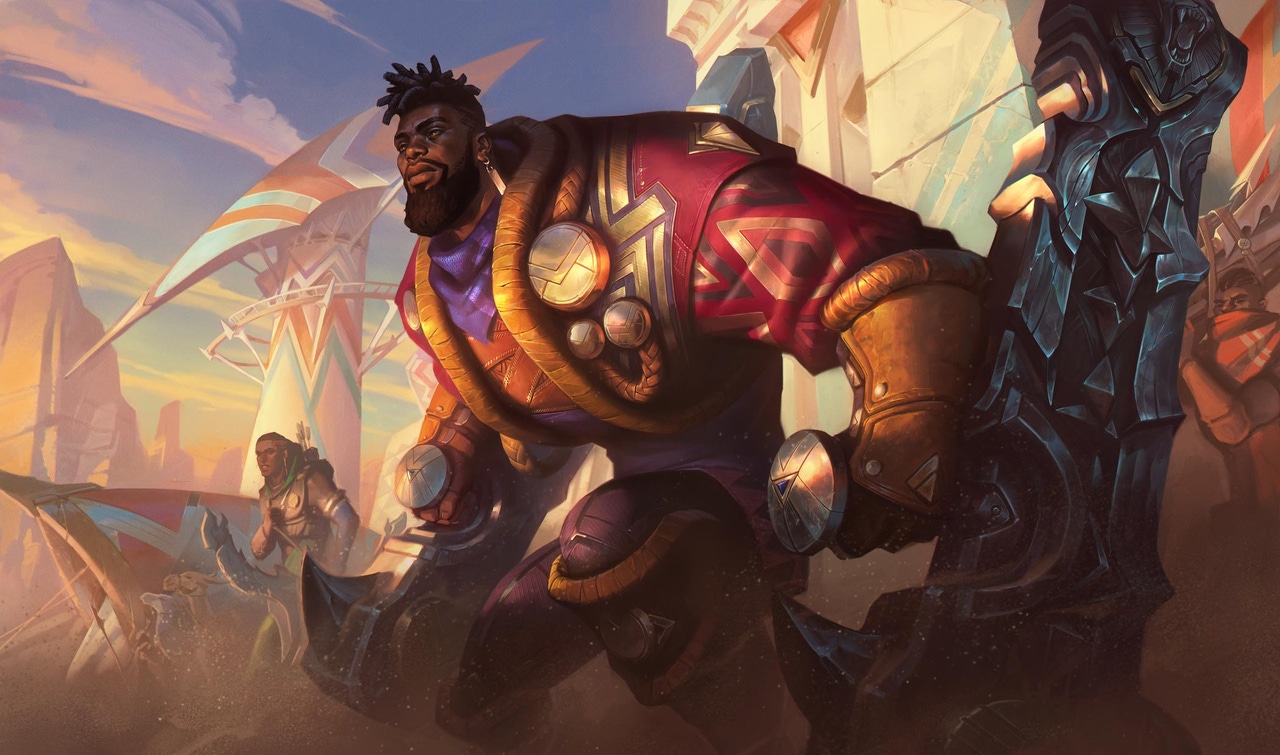Trending
Opinion: How will Project 2025 impact game developers?
The Heritage Foundation's manifesto for the possible next administration could do great harm to many, including large portions of the game development community.
Legal royale.

Riot Games' lawsuit against mobile developer Moonton Technology was dismissed in California court earlier this week. The dismissal follows Moonton's motion to have the case moved to another court that better suits the case, which in this instance would be in China.
This is the second time that Riot Games has had a case dismissed over a change in venue. In 2017, the League of Legends developer took Moonton to court after it believed the latter developer made Magic Rush: Heroes, an allegedly blatant mobile clone of its flagship game.
Riot's case was dismissed back then, with the court similarly stating that China would be a better fit for it.
Earlier this year, Riot hit Moonton with a second lawsuit, this one alleging that UI elements and character designs from its mobile title League of Legends: Wild Rift were stolen by Moonton and implemented into its game, Mobile Legends: Bang Bang.
As US District Judge Michael Fitzgerald wrote earlier this week: "The question is whether circumstances have truly changed from those that existed in 2017 or whether Riot simply seeks a second bite at the apple, unhappy with the progress (or lack thereof) in the still ongoing, parallel China litigation. The Court deems the latter to be the case."
During the court proceedings, Riot argued against Moonton's motion to move the case, but was denied on all three counts.
Further complicating matters is the involvement of Riot's parent company, Tencent, or lack thereof.
The tech giant separately filed its own lawsuit against Moonton in 2019, where it argued that Moonton's Bang Bang copied its 2015 mobile game, Honor of Kings. As of October 2022, Tencent lost that case, and was found guilty of spreading "misleading information" against its competitor.
For Fitzgerald, that lawsuit also factored into his recent ruling. He stated that it was "unfair to allow Riot and Tencent to bring a two-front war against Moonton unless and until Tencent decides to show up on both battlefields."
He further argued that it was unclear what elements of League were made by Tencent and what was made by Riot, which has been a key part of Moonton's defense. He also argued that Tencent's refusal to provide information to help its subsidiary didn't help matters.
Ajay Krishnan, a partner at Moonton's legal firm Keker, Van Nest & Peters, wrote that "it would have been duplicative, inefficient, and wholly unfair to proceed with this case in the U.S., where Moonton would lack access to key evidence and witnesses."
Conversely, Riot's legal representative Dan Nabel said that it "strongly disagreed" with the California court's rulings, and was in the middle of pursuing other options, including an appeal.
"The idea of having US citizens apply for M5 visas to fly overseas in order to ask a Chinese court for relief concerning works that were both created and infringed in the US—defies common sense. On top of that, Moonton’s knock-off game isn't even available in China."
You May Also Like